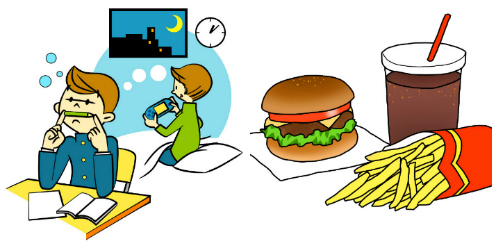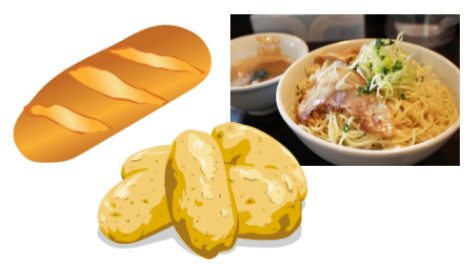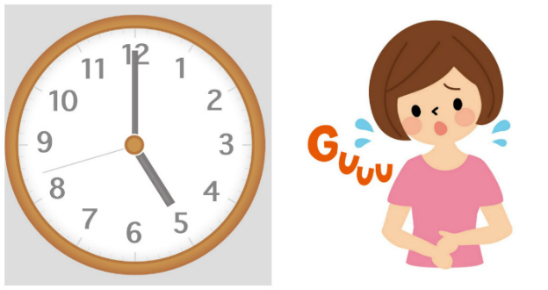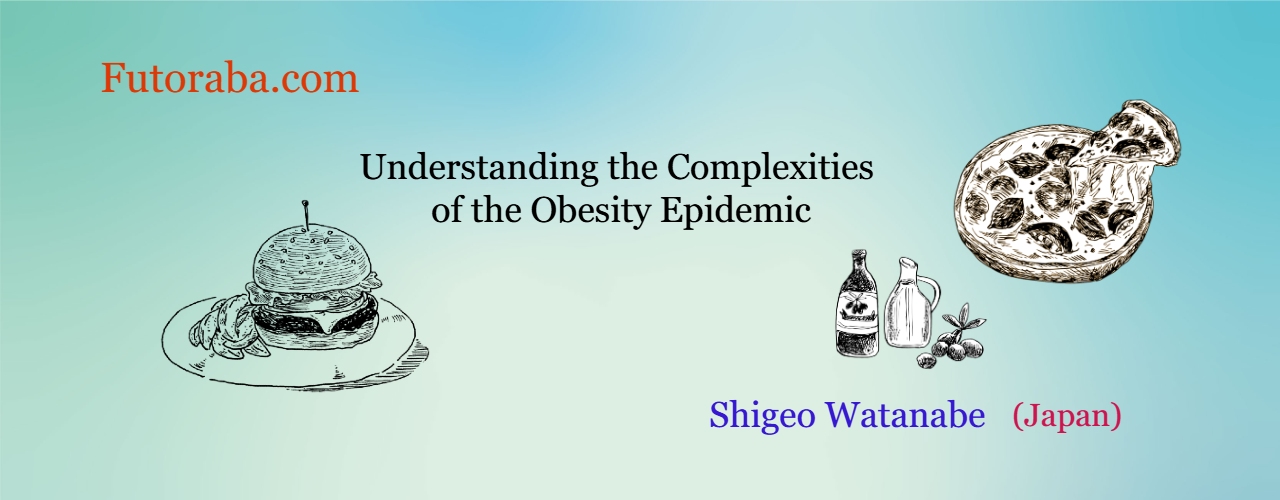Topics
10/17/2016
Three (+one) Factors to Accelerate “Intestinal Starvation”
Contents
- An unbalanced diet and irregular eating rhythm can cause intestinal starvation
- This last, but not least important factor, what is “+one? ”
1. An unbalanced diet and irregular eating rhythm can cause intestinal starvation
I’ve stated before that what increases your set-point weight is the hunger mechanism (intestinal starvation) and here, I want to talk about three(+one) factors that accelerate intestinal starvation.
【Related article】→My Definition of “Intestinal Starvation”

In Japan, the reasons for gaining weight with the exception of calories are often said to be associated with:
■an unbalanced diet
・fast food/junk food
・too many carbohydrates
・lack of vegetables, etc.
■ irregular eating rhythm
・eating dinner late at night
・skipping breakfast or lunch
・snacking or not
When there is only one of the situations from above, the intestinal starvation mechanism hardly occurs. However, when there are three and the +one factor which I will discuss later, the mechanism for intestinal starvation happens more often.
The 3 factors are as follows :
- What you eat (quality and balance of food);
- the time you stay very hungry between meals;
- the ability to digest (stomach acid, digestive enzymes, etc).
Some say they gained weight from eating too many carbohydrates, but others won’t seem to gain weight even if they eat a lot of carbs.
Some say they gained weight by eating junk foods late at night, but others don't gain at all, even if they eat in the same way.
These differences exist since intestinal starvation is decided by the composition of various factors.
Explanation of (1)
1)What you eat (quality and balance of food)
・Low fiber intake ・Refined carbohydrates ・Digestible protein
・Processed food ・Fast food ・Junk food, etc.
Meals with mainly refined carbohydrates (starch) and some good protein (a small amount is enough) and less fiber intake from vegetables, make people fat most easily. It seems with less fat in the diet, intestinal starvation is more likely to be induced. It’s because dietary fat slows digestion.

It doesn’t depend on the amount of calories you eat but the quality and balance of food you eat.
For example, eating a variety of foods and having a good balance vs a bad balance may lead to gaining weight, even if you eat in small amounts.
In contrast, balanced meals including vegetable fiber, dairy products, low G.I. foods, meat, and fat, etc., prevent inducing intestinal starvation.
*Eating speed, how many times you chew your food, or hydration during the meal, are also related to the above.
Explanation of (2)
2) The time you stay very hungry between meals
・Skipping breakfast or lunch ・Late dinner
・Number of meals per day ・Snacking or not

When we say we got fat due to an irregular eating rhythm such as late dinners or not eating breakfast, it means the problem is because of the time span between meals.
In other words, experiencing being hungry for a long period of time.
Eating late at night won’t automatically make you fat. If you have to eat a late dinner, you can snack (milk, chocolates, or sandwiches, etc.) between meals in order to prevent intestinal starvation.
Explanation of (3)
3) Digestive ability
・Strong/weak stomach ・Gastroptosis
・Difference of digestive enzymes

Those with strong stomachs and high digestive ability tend to induce intestinal starvation more rapidly than those with slow digestion.
This is because intestinal starvation doesn’t depend on the amount of food intake, but how fast the food is processed in the entire intestinal tract (or it might be a small intestine only).
It differs from person to person, but Individuals with a droopy stomach, or poor digestion might not be able to even induce intestinal starvation.
If there are genetic factors, the difference of digestive ability will be the first thing I will bring up as the factors. And it may vary between races as well as between families. (Of course, it may change after birth.)
2. This last, but not least important factor, what is “+one ?”
I stated that an important factor other than the above three factors is “+one,” but this can be explained by a “continuity,” which is whether you had an unbalanced diet (or a light meal) for your previous meal and the meals before that.

(Japanese typical breakfast we used to eat)
For example, you eat a light meal such as a hamburger and coffee for lunch, and then you can’t eat until 9 p.m. that night.
If you had also eaten a heavy breakfast with dairy, salad, seaweed, beans, or butter, you won’t experience a intestinal starvation (it depends on the person).
The reason for this is that the intestines are as long as seven to eight meters, so it takes the food more than ten hours to pass through.
Intestinal starvation is determined by the entire intestinal tract (or it might be the small intestine only), so the previous meal or the meals before that also affect it.

